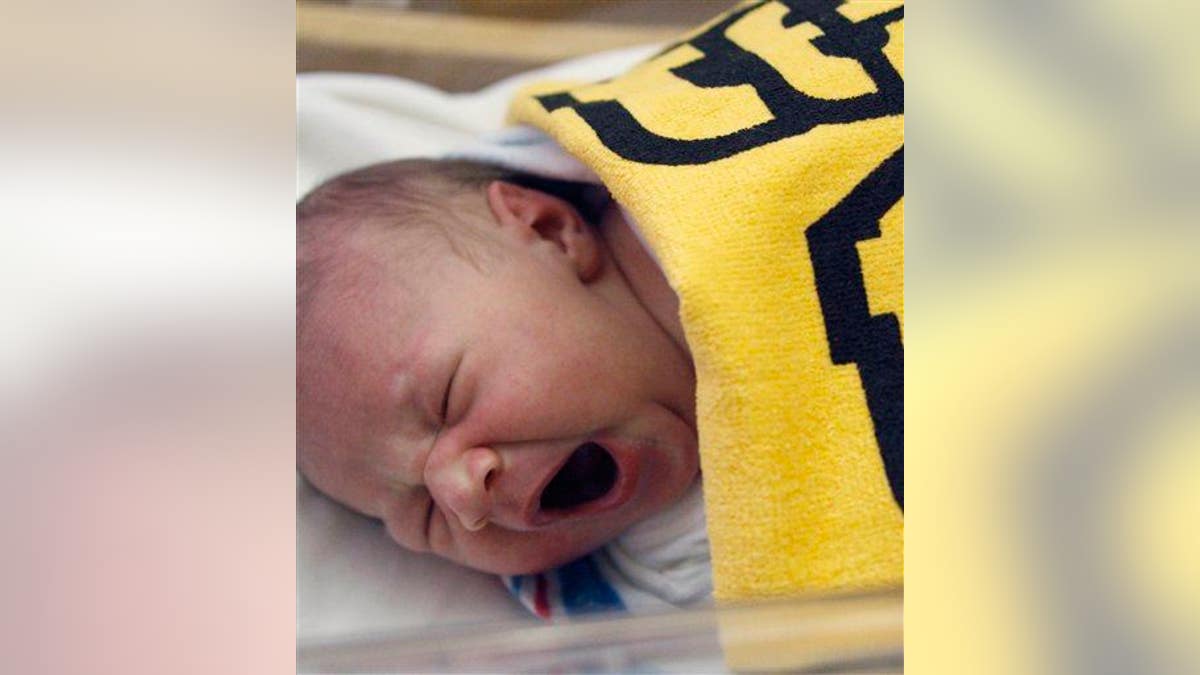
A newborn is shown in this file photo. (AP Photo/Keith Srakocic)
The majority of newborns with brain damage weren't born that way, meaning a medical mishap during their birth didn't cause the damage. Researchers at Loyola University Medical Center and Loyola University Chicago report in the Journal of Perinatology that of the 32 full-term infants whose records they examined after the newborns developed "severe" cerebral palsy and mental retardation, 18 had an infection called chorioamnionitis and 14 had severe anemia.
The infection occurs when bacteria attack the amniotic fluid and membranes that surround the baby in utero, while anemia results from low blood levels following birth, reports Science Daily.
(More broadly, between one and three of every 1,000 full-term newborns experience encephalopathy, i.e. brain disease or damage.) In addition, the gases in the newborns' umbilical cord blood were normal, the brains' deep gray matter didn't appear injured, and other signs suggest their brains were actually not damaged at the time of birth.
It's the hours immediately following delivery that appear key, the researchers write: "All too often in cases of professional liability, the focus is on the last two hours of a normal 7,000-hour term pregnancy. This study would support closer scrutiny of the first two hours [following birth] as a possible [cause] for non-preventable adverse neurological outcomes in newborns." Essentially, the babies simply weren't able to cope with their own conditions once out of the womb and tended to suffer "devastating outcomes," even with the best resuscitation efforts, reports MD Magazine.
Example: Most with chorioamnionitis developed sepsis, an extreme immune response that can lead to organ failure, brain damage, and even death. (One emerging virus causes such a severe form of brain damage that some countries are asking women to avoid getting pregnant altogether for a couple of years.)
This article originally appeared on Newser: Deliveries Not to Blame for Brain-Damaged Newborns
More From Newser
